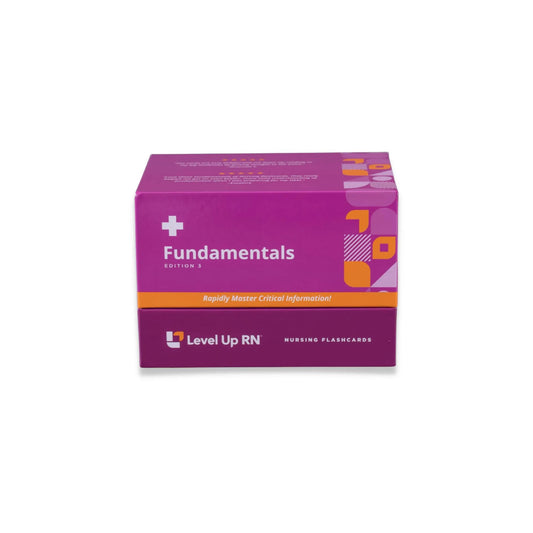Fundamentals - Gerontology, part 12: Elder Mistreatment
Updated: Ellis ParkerElder mistreatment, including risk factors, types of abuse, signs/symptoms, and nursing care.
Full Transcript: Fundamentals - Gerontology, part 12: Elder Mistreatment
Full Transcript: Fundamentals - Gerontology, part 12: Elder Mistreatment
Hi, I'm Ellis. And in this video, I'll be covering elder mistreatment. And we actually cover that on two cards. These cards can be found in the gerontology section of our Fundamentals flashcard deck. So if you have that deck, you can grab these cards, and you can follow along with me.
The risk factors that lead to being a victim of elder mistreatment include patients that have dementia, patients that have physical dependency on other individuals for their care, and people that experience social isolation. The risk factors of becoming the perpetrator of elder abuse include caregiver strain, substance abuse, and mental health disorders. There are many types of elder mistreatment, so there is, of course, physical abuse, hitting, pushing, pulling, and then any type of physical restraint is inappropriate and physical abuse. Emotional abuse are things like humiliation, verbal threats, and harassment. Sexual abuse is non-consensual sexual acts. Economic abuse is misappropriation of funds, so withholding or misusing somebody's money. And then neglect is the failure to care for someone, so failure on the caretaker's part to provide somebody with basic needs. And those can be medical needs like taking somebody to the doctor or to the emergency room or simply just giving them their medications. It can also include nutrition, so feeding and providing water and other sustenance. And it also includes hygiene, so making sure that they are bathed and cleaned appropriately. And finally, there's abandonment, which is simply leaving a vulnerable person alone.
The signs and symptoms of elder mistreatment will, of course, vary depending on what type of abuse is occurring. But some of those are going to include bruises and injuries that are in different stages of healing, treatment delay, dehydration, pressure injuries, poor hygiene, and then an incompatibility between the injury and how someone is explaining that it happened and an incompatibility or inconsistency between what the patient is saying and what the caregiver is saying. So it's important for the nurse to screen for elder abuse using screening tools and to try to make sure that there is a time in which they can talk to the patient alone without the caregiver present. Any time the nurse suspects any type of abuse or mistreatment, we need to be reporting that to adult protective services, right? We are mandated reporters. They are a vulnerable population. And to be clear, I only have to report if I am suspicious. I do not have to prove that abuse or neglect is occurring.
Something that is great to share with patients and their caregivers is respite care. Respite care is short-term relief for caregivers. It is short-term relief of duties for the caregiver. And what that means is that it allows that caregiver a break in their duties, which decreases their burnout. And it prevents abuse because that person hopefully isn't experienced the burnout because I think it's really important to consider elder mistreatment doesn't have to be intentional, right? It's not always malicious. It's not always because that person doesn't love or care for or want to take care of their patients or loved one. Sometimes it just means they don't have the resources or they don't have the knowledge or they just need help. And so it's important for us to make sure that we're not jumping to conclusions and judgment because it isn't always that people are purposefully doing this, but respite care can be a really great resource to allow caregivers breaks in that caregiving role and hopefully prevent elder mistreatment from happening.
Name at least two of the risk factors that an older adult might have that puts them at a higher risk for experiencing elder mistreatment. These risk factors include dementia, being physically dependent on somebody else for care, and those who experience social isolation. Describe neglect. Neglect is the failure of a caretaker to provide basic needs. So these are going to include things like nutrition, food, water, basic hygiene needs, bathing, cleaning, incontinence, toileting, and medication and medical needs, so taking someone to the doctor and giving them their medication. What can you recommend to a caregiver to assist them in a short-term relief of their duties? That would be respite care.


